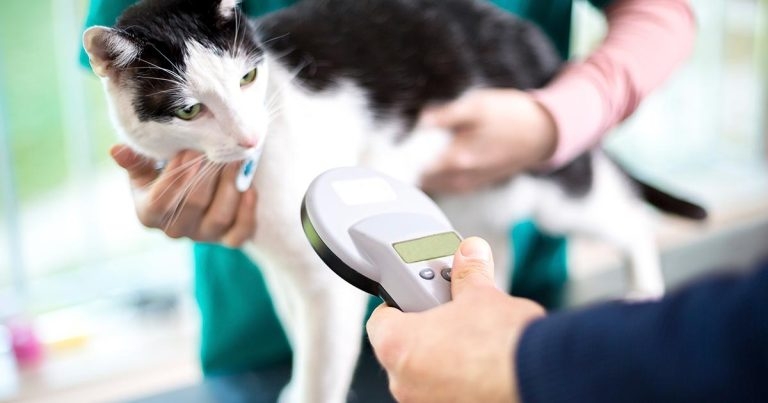9 Aug 2022
The Tuk's Law group is seeking a legal requirement for vets to check that a person presenting an otherwise healthy animal for euthanasia is registered on its microchip.

Image © Lucky Business / Adobe Stock
Tougher rules are needed to prevent animals from being euthanised unnecessarily in the UK despite updated guidance for vets, campaigners have warned.
Nearly 13,000 people have signed an online petition demanding a review of the number of animals that are euthanised and “a solution to protect animals from being unnecessarily euthanised”.
Proposals for new legislation in the area are also expected to be debated in Parliament this autumn. But the BVA said the present guidelines offer a “workable” solution, while the Government insists there is “no evidence” that a further review is needed.
The current campaign is being headed by the Tuk’s Law group, which is seeking a legal requirement for vets to check that a person presenting an otherwise healthy animal for euthanasia is registered on its microchip.
An amendment to the RCVS Code of Conduct, introduced last year, requires vets to scan for a microchip and check relevant databases if one is found when there is no health or welfare reason for a dog to be euthanised.
The code continues: “Clients may have a contract with the shelter from which they acquired the dog such that it can be returned to that shelter, and that it may be appropriate to discuss this with them prior to euthanasia.
“Alternatively, there may be another individual willing to take responsibility for the dog (who may be named on the microchip database), and this may also be discussed with the client.”
But amid the pressures caused by the cost of living crisis, and following research from the Pet Food Manufacturers’ Association that suggested around one in eight of all households gave up a pet in the past year, there are fears that existing problems are likely to get worse.
The Tuk’s Law group said it is “already aware that difficult decisions are being made in rescue centres and veterinarian practices across the UK”, and more measures are needed now to understand the full extent of the problem.
Its petition, which attracted 12,989 signatures before it closed at the start of August, said: “The review should consider solutions such as a centralised reporting system, so that local councils, rescue centres, vet practices, and crematoriums are required to retain and report key information about the animals they euthanise, such as descriptions, microchip numbers and their registered vet.”
It also argued the RCVS complaints process was “not fit for purpose”, alleging that concerns raised by rescue organisations about dogs being euthanised were either found not to be in breach of the guidance or ignored altogether.
The college said it could not comment on individual cases, but insisted the disciplinary process for dealing with alleged breaches of the microchip guidance would be the same as for any other matter.
The RCVS also confirmed it was not collecting data on the issue and there were no plans to further amend the guidance.
However, it admitted microchipping guidance would need to be updated if Defra introduces a formal requirement for cats to carry chips. It has been mandatory for dogs to have microchips since April 2016.
Meanwhile, the Government’s response – issued in June after the 10,000 signature threshold for a formal answer to the petition was exceeded – also maintained current laws were sufficient.
It said: “Existing vet requirements already protect animals from unnecessary euthanasia. There is no evidence of widespread unnecessary euthanasia requiring a Government review or new reporting requirement.”
Tuk’s Law described that approach as “very disappointing, and demonstrated a lack of awareness and understanding of the current situation among small rescues and rehoming groups.”
But a Private Members’ bill aims to make it a legal requirement for vets to scan microchips for rescue contact details and confirm the owner of an animal is the person presenting it for euthanasia. The bill, which was presented by the Conservative MP James Daly last month, is due to have its second reading in the House of Commons in late October.
BVA president Justine Shotton said: “Euthanasia is an emotive subject and having those difficult conversations with clients about an animal’s best interests is one of the most important jobs for vets.
“The present guidance clearly sets out the steps vets need to take, and provides a pragmatic and workable solution, requiring vets to scan for a microchip in dogs where, in their professional judgement, euthanasia of the dog is not necessary on animal health or welfare grounds.
“It’s important to remember each case is different, and it is essential vets can exercise their own professional judgement about scanning and euthanasia in order to safeguard animal welfare and protect public safety.”